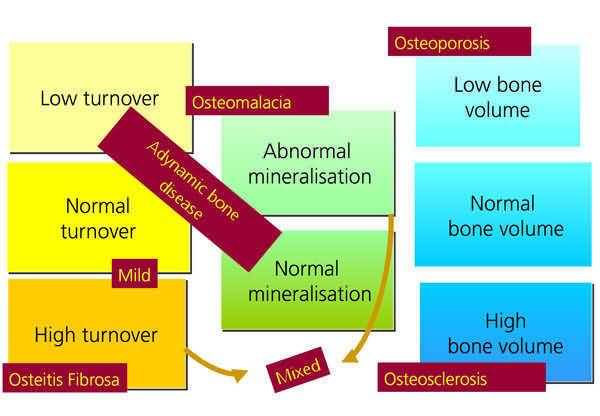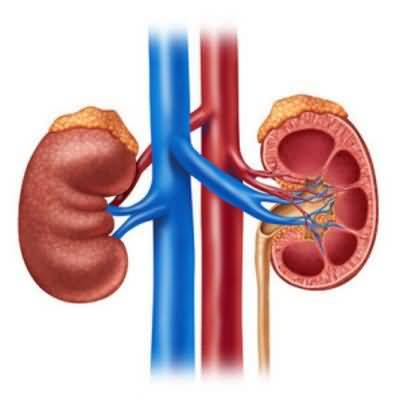Why Do Patients with Kidney Failure Develop Bone Disease
Why Do Patients with Kidney Failure Develop Bone Disease
Healthy kidneys produce an active form of vitamin D, which helps maintain stable blood and bone levels of calcium (CA) and phosphorous (PO4), and provide support for the autocrine system. Proper vitamin D levels along with the balance of CA and PO4 are necessary to maintain normal nerve and heart function, and a healthy skeleton.
When kidney function declines, this balance is disturbed. One serious result is the triggering of the parathyroid glands located in the front of the neck to produce parathyroid hormone (PTH). PTH leeches CA and PO4 from the bones, thus raising their levels in the blood.
This leads to renal bone disease, or osteodystrophy, a calcification of other organs and tissues, which can lead to death. This overworking of the parathyroid gland leads to secondary hyperparathyroidism (SHPT), a form of hyperparathyroidism, with a chronically overactive gland secreting large amounts of hormone.
How SHPT is Treated
Approximately 70% of patients with chronic kidney disease have high PTH levels. Critical to turning off this process and reducing the risks associated with vitamin D deficiency is treatment with an injectable form of vitamin D. A new class of drugs that reduces PTH levels rapidly and effectively, called vitamin D analogues, became available in the late 1990s. Another class of drug indicated for treatment of SHPT. Calcimimetics, became available in 2004. Calcimimetics are not included in the bundled composite rate. Sometimes though rarely, unsuccessful treatment results in the surgical removal of the parathyroid, a procedure known as a parathyroidectomy.
Vitamin D analogue therapy has been shown to reduce morbidity and mortality in patients undergoing dialysis. Payment for vitamin D analogues is now included in the bundled composite rate for dialysis therapy.
Because patients absorb phosphorus from food and cannot eliminate it, often phosphate binders are needed with each meal. They bind or absorb some of the phosphate in the food and eliminate it through the bowel.
Vitamin D functions in the body through both an endocrine (regulation of calcium absorption) and an autocrine mechanism (supporting gene expression). The endocrine mechanism affects the bone and mineral metabolism, while the autocrine impacts several body systems and is associated with a variety of chronic disorders, including cancers, cardiac disorders and hypertension, diabetes, immunity, and response to infection. Because cardiac disorders and infectious processes are the two leading causes of death in this patient population, treatment with vitamin D is extremely important to their prognosis, outcomes, and costs of care.


















